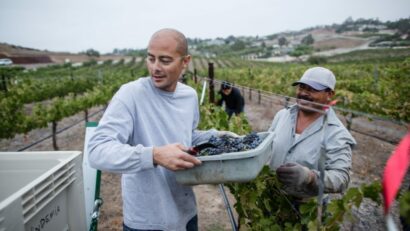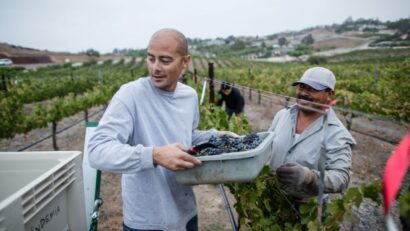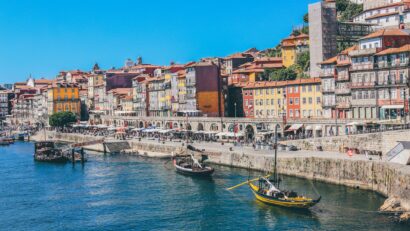Social media trolls have become a dangerous and often unavoidable part of our online lives. They bully, lie, and try to confuse social media users, and some are even paid to do so. While they may seem like a mere annoyance, they have the ability to influence opinion on some of the world’s most important issues. One group, who call themselves Team Ninja Trollhunters, have decided to fight back, but they’ve had to be smart in doing so.
Before the dawn of the internet era, trolls were mainly the concern of Scandinavian fairy tale characters. Unfortunately for us, they have since swapped caves for keyboards and have a real impact on both our online and real-world lives.
Social media trolls are everywhere
While internet trolling may, at best, be seen as just a bit of fun, discourse often turns nasty, and almost no topic or post is safe. Look in the comment section under almost any widely-shared post on Facebook, Twitter, or Instagram, whether the post is about an election, sports result, LGBTQ+ rights, or climate change, and you’ll be sure to find trolls lurking. They bully, spread misinformation, confuse, shout down experts, and generally try to get an angry reaction from people who are only trying to have a conversation about something they find important. But people are becoming increasingly tired with this conflict, and one group of Twitter users have decided to do something about it, and provide tips on how to combat the issue yourself.
Who are the social media troll hunters and how do they do it?
This global and anonymous group call themselves Team Ninja Trollhunters, or TNT for short. They are careful not to reveal too much personal information in order to protect themselves from the very worst elements of online harassment and abuse – and they do often receive threats – but they have said that members come from a wide range of countries and professions, with more than half having a scientific background and an average age of around forty.
So how do they do it? One thing they always avoid is directly interacting with trolls. A spokesperson for the group said:
“Don’t waste your time. They want to hook you and spend an hour confusing you, because that’s what trolls want… I’m not trying to convince the troll. Most of the time, trolls don’t have any facts. They have doubt, disinformation, division, confusion”
As changing their mind isn’t an option, TNT go for the next best thing – silencing them so that they cannot achieve their goals. The best way to do this is by reporting the user and getting them blocked. Unfortunately, it is not currently against twitter rules to spread false information about the climate crisis. We also shouldn’t hold our breath in hope of this changing anytime soon, especially since Elon Musk bought the company in October 2022.
There are however some things that even Musk can’t be seen to allow, such as racism, clear and direct misogyny and homophobia, and aggressive bullying. Therefore, TNT members look through the other tweets of the trolls spreading climate misinformation and try to find instances of these rule violations. If they find them, they report the tweets and hope that the user is banned from the website.
“Misinformation or disinformation doesn’t matter as much to Twitter. But if you’re being racist, hateful, misogynist and so on, those are definitely reportable and we focus on these” – A TNT Member
Thanks to Elon Musk, the fight against Twitter trolls just got harder
Musk has taken a very relaxed approach to policing all kinds of hate speech, lies, and bullying on the website, and has actually made it easier for trolls to have their voices heard. This is because of the introduction of ‘Twitter Blue’. Twitter Blue allows anyone to become a verified account, something that in the past was reserved for journalists, politicians, celebrities and the like. If you want to become verified on Twitter now, all you need to do is pay $8 a month. One of the main perks of verification is that your tweets become more prominent due to the way that Twitter’s algorithm has been designed. This includes replies to other users’ tweets, where the replies of verified accounts will be the first that other users see. Unfortunately, many people who are willing to give Musk his $8 are the kind of people who engage in trolling.
A tweet from climate activists Just Stop Oil.
Verified accounts, who’s replies are pushed to the top, ‘trolling’.
The rise of the social media troll farm
So far, TNT have been quite successful in their methods. They claim to have successfully removed 600 key accounts that were causing the most damage and spreading the most destructive lies. But this is sadly a drop in the online ocean of disinformation. The recent emergence of information on ‘troll farms’ is particularly concerning. These are organisations of trolls, funded by those with an interest in spreading disinformation, who are dedicated to shifting public opinion. For example, a 2021 study found that troll farms reached 140 million Americans a month on Facebook before the 2020 election. Another example which came to light in 2023 is of an Israeli firm who boasted of meddling in more than 30 elections worldwide.
[embedded content]
So, if you think you’ve met a troll online, don’t argue with them or even acknowledge them, it’s impossible to change the mind of someone who doesn’t want to listen or could be being paid to lie. If you want to try get rid of a troll, try to find some kind of rule violation in their other posts and report it. Läs mer…






